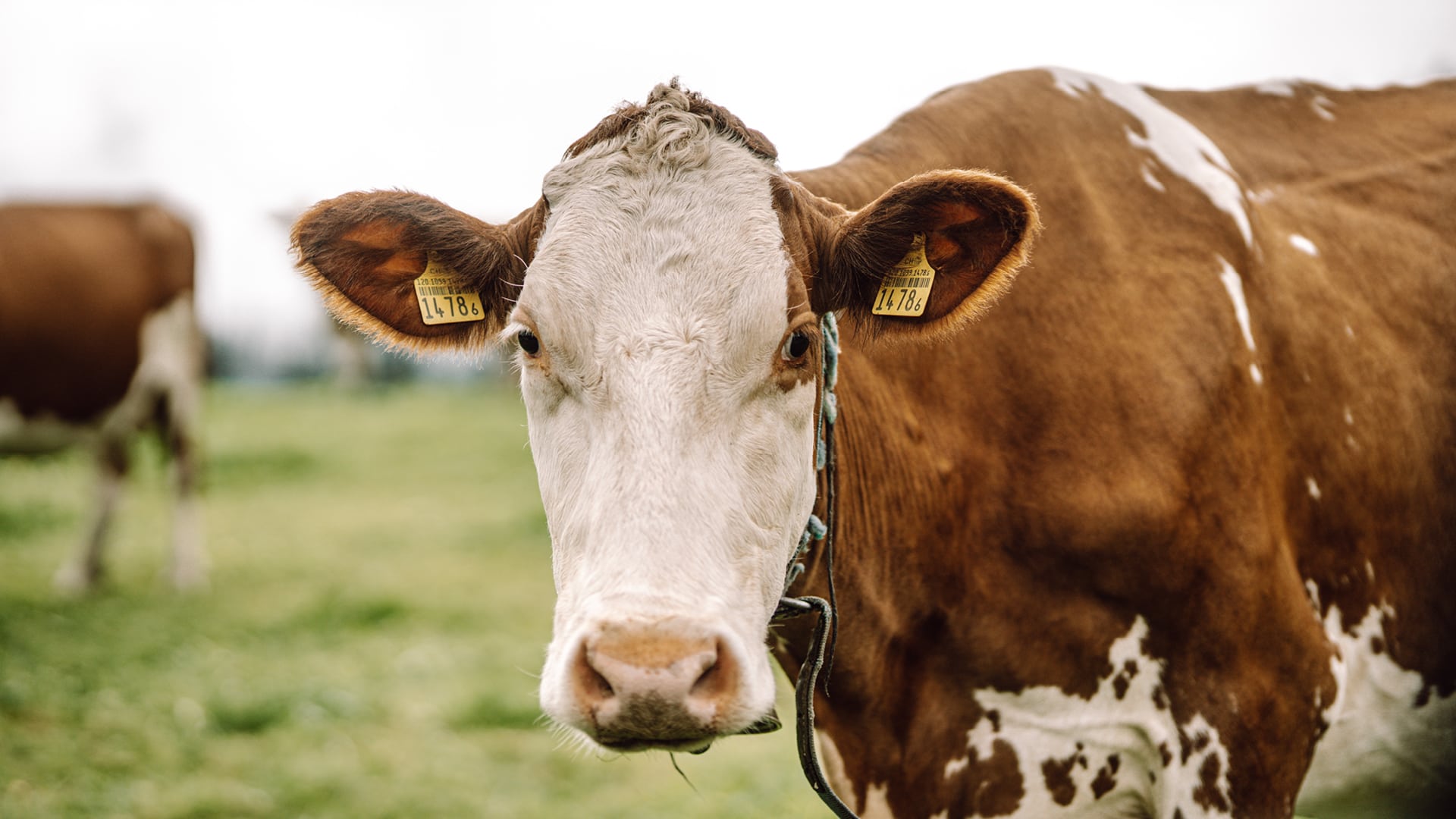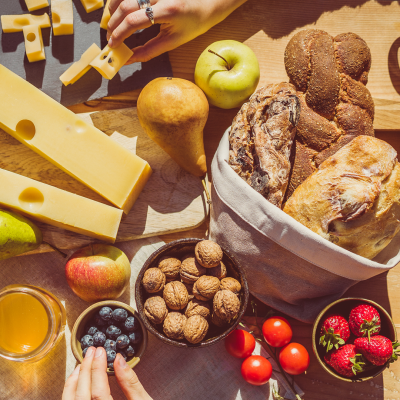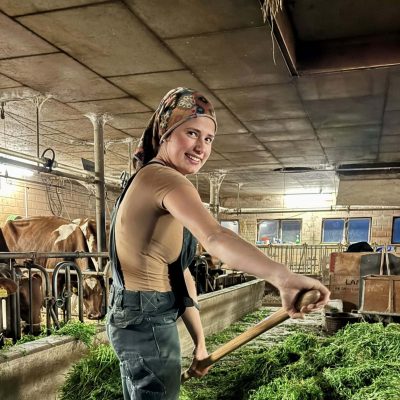Cows are herbivores. The dairy farmers that produce milk for Emmentaler AOP mainly rely on the “fruits of the region”. That means natural raw feed in the form of fresh grass, hay or herbs is on the cows’ menu every day. This type of feed is particularly tasty and rich in nutrients – the perfect characteristics for ensuring high-quality raw milk.

How much feed does a cow need?
In summer, our dairy farmers’ cows eat 70 to 80 kg of meadow forage (meadow grass and herbs) a day, and in winter they eat 15 to 25 kg of hay a day. In addition, each cow drinks between 50 and 100 l of water a day, depending on their milk production. (Source: Swissmilk)
No to silage and GMOs
Emmentaler Switzerland completely avoids the use of artificial additives and preserved silage or silo feed (green feed that has been preserved through the use of lactic acid fermentation). Silage is not suitable as feed in the context of raw milk cheese because it can lead to bad fermentation.
Another promise from your Emmentaler AOP dairy farmers: the animal feed is 100% GMO-free, guaranteed.
Our logic is: the better the feed, the healthier the cows and the better the milk. The importance of high-quality feed is reflected not only in the health of the cows, but also in the unique taste of Emmentaler AOP. Emmentaler AOP is all-natural. The AOP quality label also guarantees that our cheese is made 100% free from artificial additives. And where exactly does this promise start? With our most important partners: the dairy cows. After all, they are the ones who produce the substance that forms the foundation of all cheesemaking. What they eat goes into their milk and that goes into Emmentaler AOP. That is why the use of silage is strictly forbidden. Only grass and hay are on the menu for our dairy cows.
The fresh forage found on the meadows is particularly tasty and high in nutrients.
At least 70% of feed must be raw feed. Therefore, these dairy cows eat around 70 to 80 kg of meadow forage a day in summer and 15 to 25 kg of hay a day in winter. This not only supports animal welfare and biodiversity, but also creates the foundation for the unique taste of Emmentaler AOP.
Emmentaler Switzerland has signed up to the SCM industry code: purity requirements for Swiss cheese
This accord is a voluntary commitment to the complete avoidance of certain ingredients in the industry. Those who sign up to it must ensure that their cheese curds contain no nisin, lysozyme, nitrate, natamycin or rennet made from genetically modified organisms, or any artificial colourings. This is an important USP that distinguishes the original Emmentaler AOP from cheeses from other countries. The code came into effect in 2002 and it is continually updated in accordance with current developments in the food industry.




